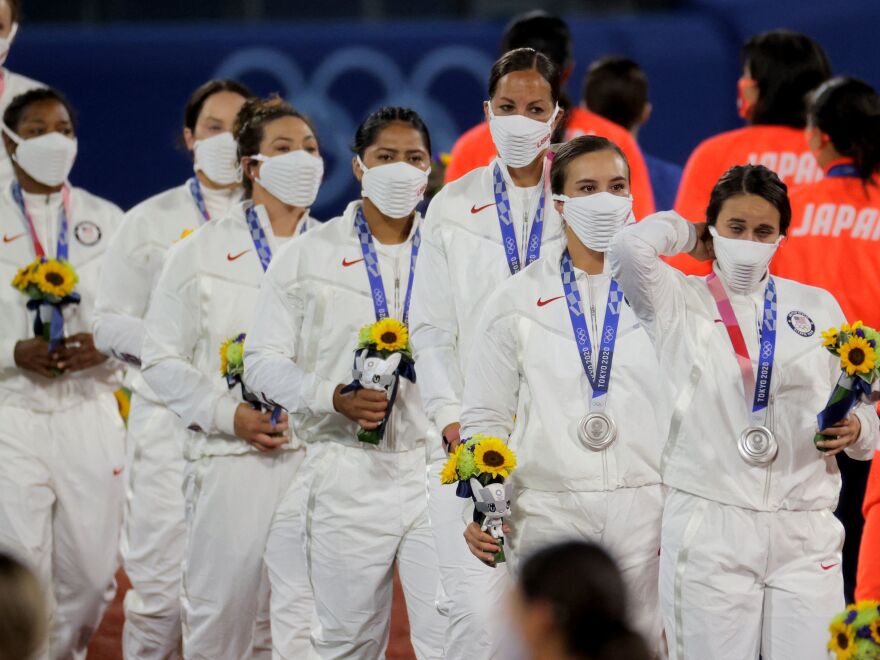TOKYO — When a U.S. athlete makes it onto the podium in an Olympic event, two things really catch the eye of people watching at home: the shiny medal around their neck and the unusual-looking mask on their face.
The white mask emblazoned with "USA" in red letters is strikingly voluminous, jutting about an inch in front of the face. It also has a distinctive pleat pattern.
It's a bold look that has been compared to the masked Batman villain Bane – even by the Japanese organizers of the Tokyo Games.
So what's the deal? Are they extra-protective or mostly a fashion statement?
The latter, it turns out.

"I think they're designed to be comfortable and meet the aesthetic of the uniform," said Jon Mason, a spokesperson for the U.S. Olympic & Paralympic Committee.
The mask is produced by Nike, and the company said the pleats are meant to evoke the folds of Japanese origami.
"The unique origami-inspired pleated design allows for optimal air flow and air volume within the lightweight, mesh mask," Nike said in a statement to NPR.
It doesn't seem to have any enhanced safety features. Nike stressed that the mask, which will soon be sold to the broader public, is not medical grade and should not be used as personal protective equipment like an N95. It's supposed to be used to work out in, according to the company.
Mason said Team USA initially wondered whether reporters would be able to hear the athletes talking through the large masks, but he said "they actually work very well for that."
The athletes seem happy with them, he said.
"They all say that they're definitely unique, but they all like them. They think they're cool. There's been no negative feedback that I've heard, just a lot of questions about them."
Copyright 2022 NPR. To see more, visit https://www.npr.org.




